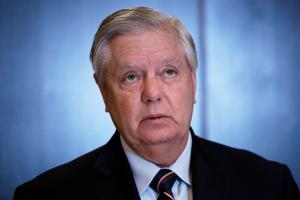The current administration is reportedly considering a significant shift in its approach to international relations, particularly concerning nations that appear to enable or finance global aggression. After expressing ongoing frustrations with persistent challenges, the president may now explore more assertive economic measures designed to influence foreign policy outcomes and promote stability. This evolving strategy underscores a growing recognition that diplomatic overtures alone may not be sufficient to alter the course of certain international dynamics.
A notable development in this strategic pivot is the emerging bipartisan consensus within the legislative body. Members from both major political parties are actively coalescing around the concept of applying robust economic tools to address critical global challenges. This broad political backing suggests a strong desire across the spectrum to implement powerful, coordinated responses that can effectively deter unwelcome activities by foreign actors.
Central to this new consideration is a pending legislative proposal in the Senate, which has garnered substantial support from a wide array of lawmakers. This comprehensive bill aims to introduce significant secondary tariffs on imported goods originating from countries identified as providing financial assistance to aggressive states. Such economic sanctions are designed to create a powerful disincentive for nations that indirectly sustain destabilizing actions on the world stage.
Proponents of this measure, including prominent senators from diverse political backgrounds, characterize it as the “ultimate hammer” in bringing about desired changes in international conduct. Their assertion is that by targeting nations that purchase resources like oil and gas from implicated regimes at reduced prices, a crucial source of funding for these aggressive activities can be significantly curtailed. The strategic intent is to compel these states to reconsider their economic alignments and potentially foster conditions conducive to de-escalation.
The economic impact of such tariffs is anticipated to be substantial, creating direct pressure on countries that might otherwise benefit from maintaining commercial ties with states engaged in contentious international behavior. This form of economic leverage is seen as a potent instrument for realigning global financial flows and encouraging greater accountability from all participants in the international system.
Discussions around this legislative initiative also highlight the potential for presidential action independent of congressional movement. Reports indicate that the administration could pursue similar economic measures unilaterally once certain existing diplomatic timelines expire. This dual-track approach—both legislative and executive—underscores the seriousness with which this new economic strategy is being pursued.
Key congressional leaders have indicated their readiness to advance the bill should the president determine that its passage would provide essential leverage in ongoing international negotiations. This readiness signifies a unified front, where the executive and legislative branches are prepared to collaborate on deploying powerful economic deterrents to advance national interests and promote global stability. The aim is to ensure all necessary tools are available to encourage peaceful resolutions.
Ultimately, the consideration of these enhanced economic sanctions marks a pivotal moment in the nation’s foreign policy framework. It reflects a determined effort to employ robust financial mechanisms as a primary means of influencing international actors and safeguarding global security interests. The bipartisan support further reinforces the strategic importance and potential effectiveness of this comprehensive approach to economic statecraft.






Leave a Reply